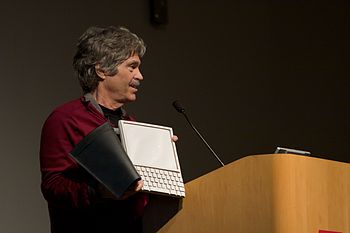(cross-posted at Future Tense)
One of the blogs I’ve been reading on a provisional basis recently is “Inside Higher Ed.” It provides an interesting contrast to the Chronicle of Higher Ed’s Wired Campus blog. Both offer valuable perspective on the life of knowledge work and knowledge workers that goes well beyond their specific focus on the world of higher education.
In a column from November, Scott McLemee reflects on a 1959 essay by the sociologist C. Wright Mills “On Intellectual Craftsmanship.” You can get your hands on a copy by buying a copy of Mills’s The Sociological Imagination. At the core of Mills’s recommendations is the notion of maintaining a file or journal, which ought to sound quite familiar. His description is worth sharing at length:
In such a file as I am going to describe, there is joined personal experience and professional activities, studies underway and studies planned. In this file, you, as an intellectual craftsman, will try to get together what you are doing intellectually and what you are experiencing as a person. Here you will not be afraid to use your experience and relate it to directly to various work in progress. By serving as a check on repetitious work, your file also enables you to conserve your energy. It also encourages you to capture ‘fringe-thoughts’: various ideas which may be by-products of everyday life, snatches of conversation overheard on the street, or, for that matter, dreams. Once noted, these may lead to more systematic thinking, as well as lend intellectual relevance to more directed experiences.
You will have often noticed how carefully accomplished thinkers treat their own minds, how closely they observe their development and organize their experience. The reason they treasure their smallest experience is that, in the course of a lifetime, modern man has so very little personal experience and yet experience is so important as a source of original intellectual work. To be able to trust yet be skeptical of your own experience, I have come to believe, is one mark of the mature workman. This ambiguous confidence is indispensable to originality in any intellectual pursuit, and the file is one way by which you can develop and justify such confidence.
The primary value of today’s tools and technologies for blogging, wikis, and the like is that they eliminate technical and usability barriers to maintaining and investing in the kind of long-lived knowledge asset that Mills is describing. Secondarily, these tools make it easier and more productive to engage in the kind of active reflection and learning Mills talks about.
What the tools don’t do is provide the discipline and support structures to help you keep at the long-term investment in becoming a better knowledge worker. Or provide a nice, neat ROI argument that you can bring to your CIO or CEO.
